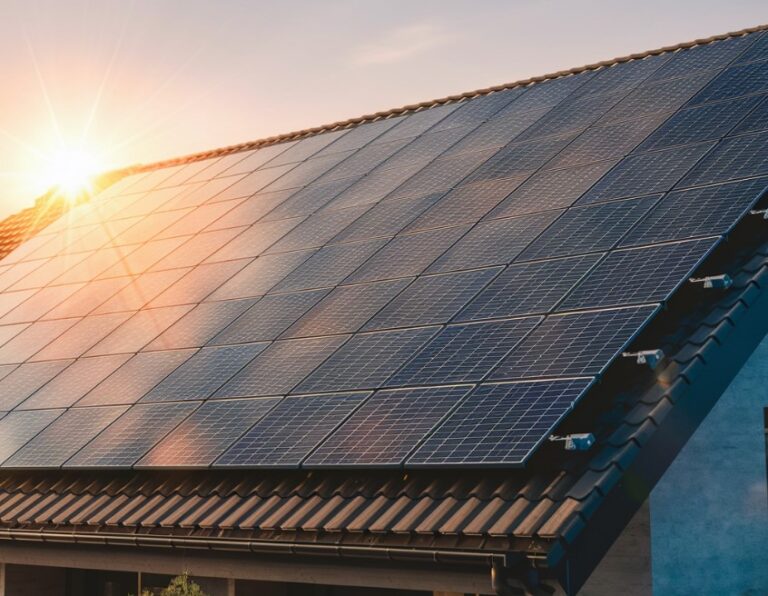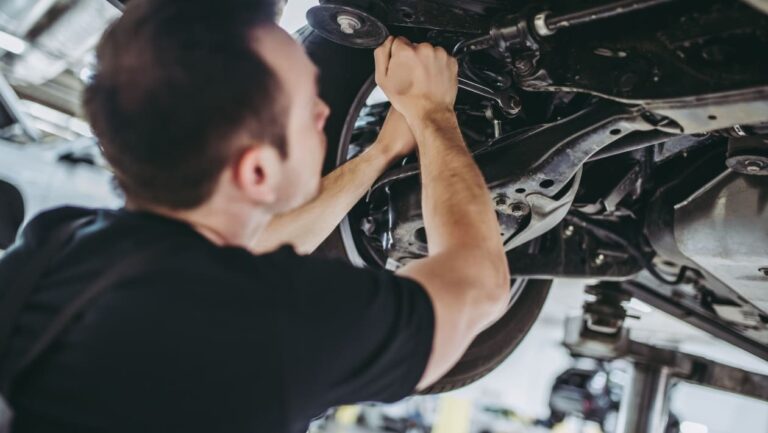Living off the grid is a dream for many who seek self-sufficiency and independence from utility companies. Achieving this goal requires a reliable and sustainable energy source, and solar power is an excellent choice. Here’s a detailed look at how solar power can make your home truly off-grid.
Understanding Off-Grid Living
Before diving into the specifics of using solar power, it’s essential to understand what living off the grid entails. Off-grid living means your home is not connected to the public utilities for electricity, water, or gas. You must generate your own power, manage water supply, and handle waste independently.
The Basics of Solar Power

Solar power harnesses energy from the sun using photovoltaic (PV) panels. These panels convert sunlight into electricity, which can be used to power your home. The fundamental components of a solar power system include PV panels, an inverter, batteries, and a charge controller.
- PV Panels: These are the core of the system, converting sunlight into direct current (DC) electricity.
- Inverter: Converts DC electricity from the panels into alternating current (AC), which is used by most home appliances.
- Batteries: Store excess energy for use when the sun isn’t shining, ensuring a constant power supply.
- Charge Controller: Regulates the flow of electricity from the panels to the batteries, preventing overcharging and damage.
Sizing Your Solar Power System
The first step in making your home truly off-grid is to determine the size of the solar power system you need. This involves calculating your energy requirements. Start by listing all the electrical appliances you use and their power consumption. Estimate the number of hours each appliance runs daily.
For example, if you have a refrigerator that consumes 100 watts and runs for 24 hours, it uses 2.4 kilowatt-hours (kWh) per day. Sum up the daily energy consumption of all your appliances to get a total figure.
Battery Storage for Off-Grid Homes
Battery storage is crucial for off-grid solar systems. Batteries store excess electricity generated during the day for use at night or during cloudy weather. Lithium-ion batteries are popular due to their efficiency, longer lifespan, and lower maintenance compared to lead-acid batteries.
The battery bank size depends on your energy needs and the autonomy required (the number of days you can run without sun). For instance, if your daily energy consumption is 10 kWh and you want three days of autonomy, you need a battery bank that can store at least 30 kWh.
Maximizing Efficiency

To make the most of your solar power system, it’s essential to maximize energy efficiency. This involves:
- Using Energy-Efficient Appliances: Invest in appliances with high energy efficiency ratings.
- LED Lighting: Replace incandescent bulbs with LED lights to reduce power consumption.
- Insulation: Properly insulate your home to reduce heating and cooling needs.
- Energy Management: Monitor and manage your energy usage carefully.
Backup Systems
Even with a robust solar power system, having a backup is wise. A generator can provide power during prolonged cloudy periods or system maintenance. Choose a generator that runs on propane or natural gas, as they are cleaner and more efficient than gasoline or diesel.
Water and Waste Management
An off-grid home isn’t just about power. Water supply and waste management are also critical. For water, you can use a combination of rainwater harvesting, wells, and water storage tanks. Ensure you have a filtration system to provide clean drinking water.
For waste management, composting toilets and greywater systems can reduce water usage and manage waste sustainably. These systems are essential for maintaining an eco-friendly off-grid lifestyle.
Financial Considerations
While the initial investment in a solar power system can be significant, the long-term savings are substantial. You eliminate monthly electricity bills and reduce reliance on fossil fuels. Additionally, many governments offer incentives and rebates for installing renewable energy systems, which can offset initial costs.
Environmental Benefits
By going off-grid with solar power, you significantly reduce your carbon footprint. Solar energy is clean and renewable, producing no greenhouse gases during operation. This move not only benefits your wallet but also contributes to environmental sustainability.
Case Study: Off-Grid Success Stories
Looking at real-life examples can provide inspiration and practical insights. For instance, the Johnson family in rural Colorado successfully transitioned to off-grid living with a solar power system. They installed a 10 kW system with a 40 kWh battery bank, providing enough energy to run their home and workshop. By incorporating energy-efficient appliances and proper insulation, they minimized their energy needs and maximized the system’s efficiency.
Challenges and Solutions
Living off the grid comes with its challenges. Weather variability, system maintenance, and initial costs are common concerns. However, these can be mitigated with proper planning and investment in quality equipment.
- Weather Variability: Ensure your system is sized correctly for your location’s climate. Having a generator as a backup can alleviate concerns during extended cloudy periods.
- Maintenance: Regularly inspect and maintain your system. Clean the PV panels, check battery health, and ensure all connections are secure.
- Initial Costs: Look for financing options, grants, and incentives to reduce the upfront investment. Over time, the savings on utility bills will offset these costs.
Future Trends in Off-Grid Solar Power
The solar power industry is continually evolving, with advancements making it easier and more affordable to live off the grid. Emerging technologies such as more efficient PV panels, better battery storage solutions, and smart energy management systems are on the horizon. Keeping abreast of these developments can help you enhance your off-grid system over time.
Conclusion

Making your home truly off-grid with solar power is a feasible and rewarding endeavor. By understanding your energy needs, investing in the right equipment, and maximizing efficiency, you can achieve energy independence and enjoy the benefits of a sustainable lifestyle. While the journey requires planning and investment, the long-term rewards of financial savings, environmental benefits, and self-sufficiency are well worth the effort.
Living off the grid with solar power not only frees you from the constraints of utility companies but also allows you to live in harmony with nature, making a positive impact on the environment.
Related Posts:
- 15 Best Gas Grills Under 300 2024 - Propane Grills…
- 20 Best Gaming Headset Under 50$ 2024 - for PC, PS4,…
- Top 10 Best Power Inverter for Car 2024 - Keep Your…
- Top 10 Best Modem For Gaming 2024 - For Optimum Gaming Speed
- 15 Best Dog Food For Allergies 2024 - Adult, Puppy…
- 12 Best Car Wax For Black Cars 2024 - Protection and…







